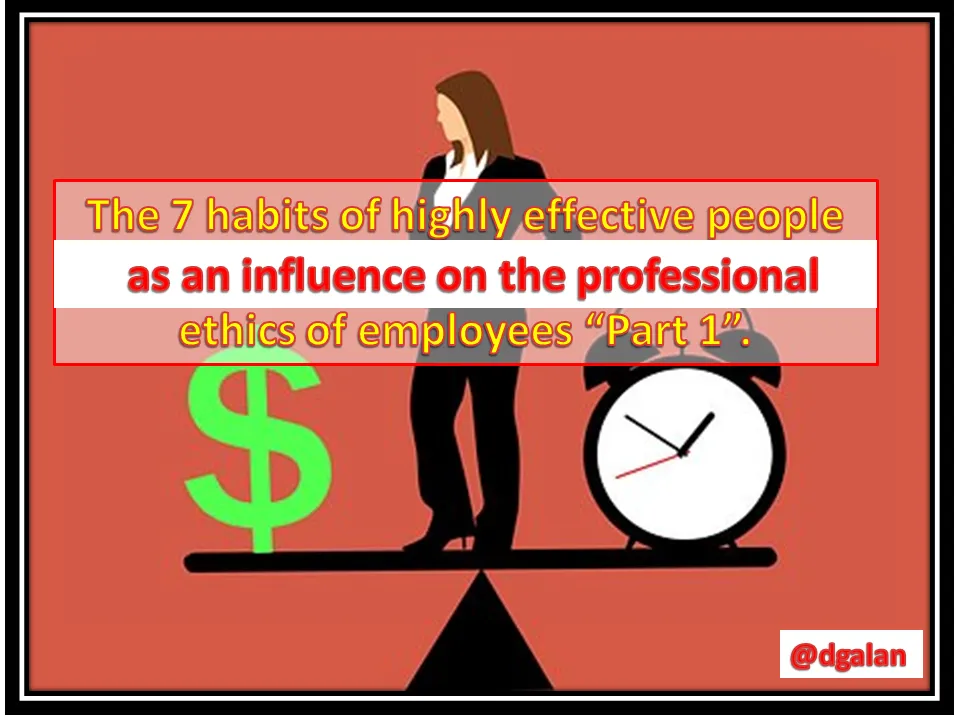Written by:Diomer Antonio Galán Rincón.
Bachelor's Degree.Public Accounting / MSc.Science of Higher Education.

Author: @dgalan,through Power Point 2010 tool, and using public domain image Pixabay
Greetings to all the members of this prestigious company, today I come to share with you the first part of the publication on the importance of the habits of highly effective people as an influence on the professional ethics of employees.
Companies that intend to be successful and achieve their strategic objectives, it is necessary to have a good management of ethics to promote desirable behaviors within the same and thus regulate the activities that are carried out within the framework of their positions.
Associated with the above, it is important to mention that one way to motivate employees to perform good actions is through the 7 habits of highly effective people, since they offer guidance to people who apply them in their personal and work life, as they are useful for self-development, resulting positive in its course towards self-improvement, the success of having a better relationship with the surrounding environment and being able to improve their qualities every day.

Image taken from:Pixabay
The 7 habits of highly effective people, is a tool capable of contributing to lead life more effectively, through a process of evolution and personal and interpersonal improvement, where in this first part, I will talk about the first three that are oriented towards self-success.
When we talk about habits, it is essential to know the terms ability, knowledge and appetite, since these conjugated together lead to the success of the first one. For, to become effective means to do different things, changing paradigms, theories, attitudes and above all to develop principles, which approve to reach efficacy and efficiency.

Image taken from:Pixabay
The first of the habits that we can comment on refers to Proactivity, which is nothing more than the encouragement to have the courage to undertake different projects and carry out all the tasks that arise, as well as being very responsible for the acts committed and decisions executed, whether for good or not. Or in other words, to be able to recognize the responsibilities of doing and not doing.

Image taken from:Pixabay
A second Habit is to Start with an End in Mind, this states that when we start a purpose, we must know the end we want to reach, it means to know very clearly the goal, vision, mission, philosophy, to know how far we are and how far we have to go to reach them. This is the only way to reach the correct steps towards growth and definitive development.
The third habit is the derivation of being proactive and starting with the end in mind, it is called Putting First Things First, and it is oriented to be able to do the tasks, to have attitudes, to organize by degree of importance and to execute them in the same direction. It is here where the transition to the adoption of principles, to the conversion of effectiveness, and the beginning of self-discovery to assume with common sense in an organized manner is opened. For, experiences and techniques are adapted and modified, but principles are not.

Image taken from:Pixabay
By putting into practice the habits mentioned above, we can say that the transition from dependence to capacity, from achieving by my own means, and from not needing someone else to achieve what I want, has taken place.
It is important to point out that the 7 habits of highly effective people do not aim to change the life of organizations, but rather to help change people from the inside out, in the long term and with the great difference that it is for life.
I hope you like my article and I would appreciate all your comments.